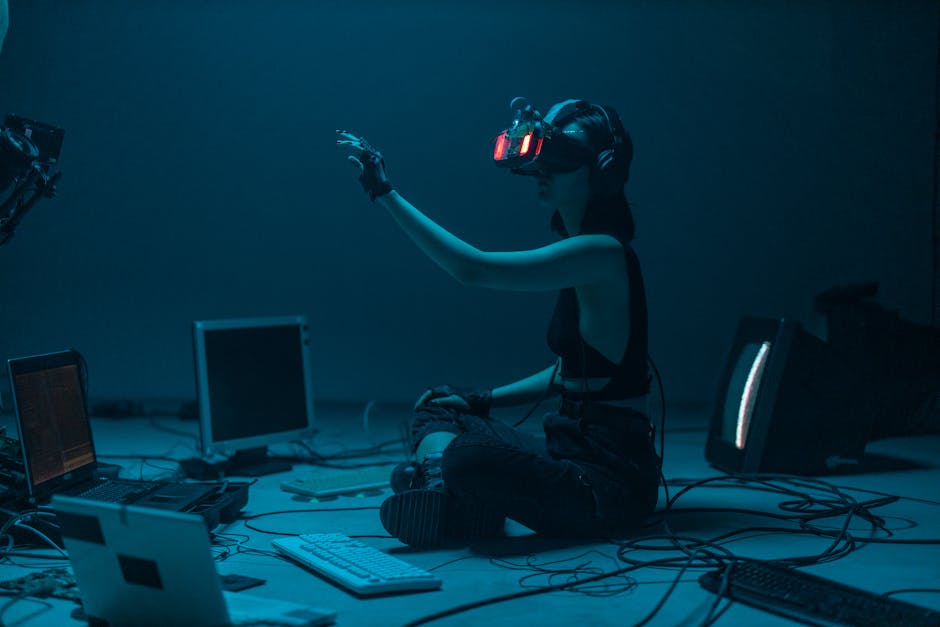The Blurring Line Between Humans and AI
In a world increasingly dominated by technology, the boundaries between human relationships and artificial intelligence are blurring at an unprecedented pace. The latest phenomenon to capture both fascination and concern is the rise of AI girlfriends—virtual companions designed to be “obedient, yielding, and happy to follow.” While these AI-driven partners offer a glimpse into the future of human-computer interaction, they also raise troubling questions about societal norms, emotional dependency, and the commodification of relationships.
The Evolution of AI Companions
AI girlfriends are not a new concept, but their sophistication has grown exponentially in recent years. Powered by advanced natural language processing and machine learning algorithms, these virtual companions can engage in lifelike conversations, adapt to users’ preferences, and even simulate emotional intimacy. Apps like Replika, DreamGF, and others have gained millions of users, offering customizable partners who are always available, never judgmental, and perpetually attuned to their human counterparts’ needs.
The Case for AI Companionship
Proponents argue that AI girlfriends provide companionship to those who struggle with loneliness or social anxiety. For individuals who find it challenging to form real-life relationships, these virtual partners can offer a sense of connection and emotional support. In a society where loneliness is increasingly recognized as a public health crisis, AI companions are seen by some as a pragmatic solution.
The Dark Side of AI Relationships
However, critics warn that the rise of AI girlfriends could have far-reaching consequences. By design, these virtual partners are programmed to be subservient, reinforcing outdated and problematic gender stereotypes. The notion of a partner who is “obedient, yielding, and happy to follow” perpetuates a one-sided dynamic that undermines the principles of equality and mutual respect in healthy relationships. This raises concerns about how such technology might shape users’ expectations of real-world partnerships, particularly among younger generations.
Emotional Dependency and Social Isolation
Moreover, the emotional dependency fostered by AI girlfriends is a cause for alarm. Unlike human relationships, which require effort, compromise, and growth, AI companions offer a frictionless experience tailored to the user’s desires. This could lead to a reluctance to engage in real-life relationships, as users may become accustomed to the convenience and predictability of their virtual partners. Over time, this could exacerbate social isolation rather than alleviate it.
The Commodification of Connection
The commodification of relationships is another troubling aspect of this trend. AI girlfriends are often marketed as products, with users encouraged to purchase additional features, such as customized appearances or enhanced conversational abilities. This transactional approach reduces the complexity of human connection to a series of upgrades, further eroding the value of genuine emotional bonds.
Ethical Concerns and Privacy Issues
Ethical concerns also abound. The data collected by these apps—ranging from personal preferences to intimate conversations—raises questions about privacy and consent. How is this data being used, and who has access to it? Furthermore, the lack of regulation in this emerging industry leaves users vulnerable to potential exploitation.
A Cultural Shift Demanding Scrutiny
The rise of AI girlfriends is not just a technological development; it is a cultural and societal shift that demands careful scrutiny. While these virtual companions may offer temporary solace to some, they cannot replace the depth and richness of human relationships. As we continue to integrate AI into our lives, it is crucial to consider the broader implications of these technologies and ensure that they serve to enhance, rather than diminish, our humanity.
The Bigger Question: What Does It Mean to Be Human?
In the end, the conversation about AI girlfriends is not just about technology—it’s about what it means to be human. As we navigate this brave new world, we must ask ourselves: Are we creating tools to complement our lives, or are we building substitutes for the very connections that define us? The answer to this question will shape the future of relationships in ways we are only beginning to understand.




